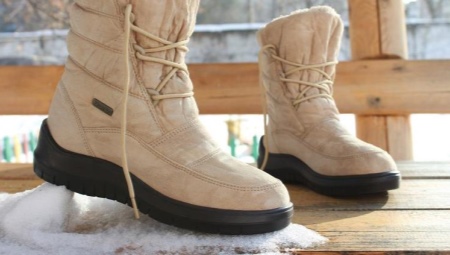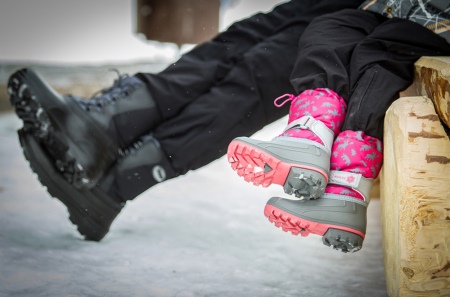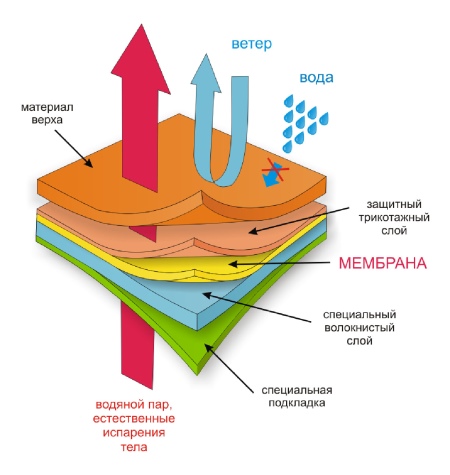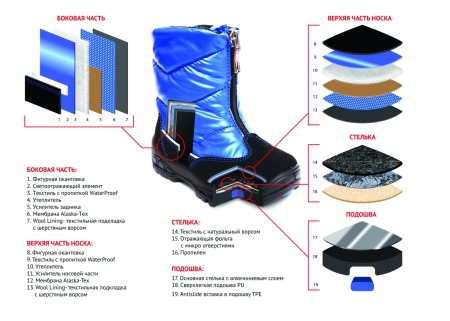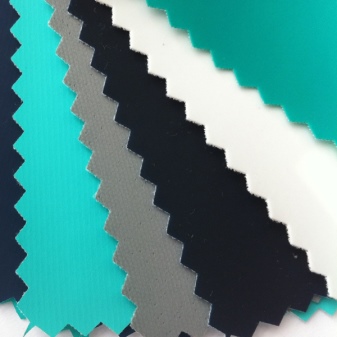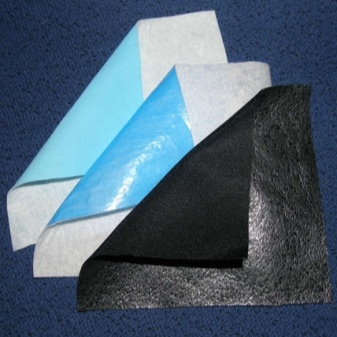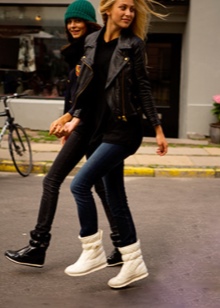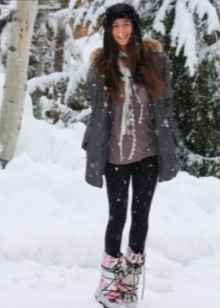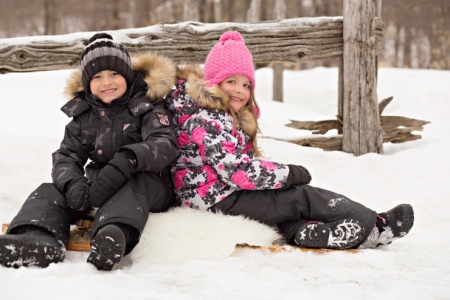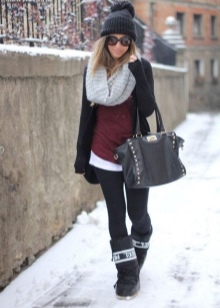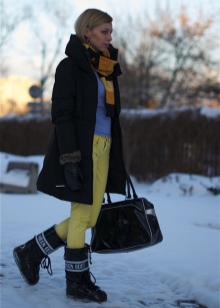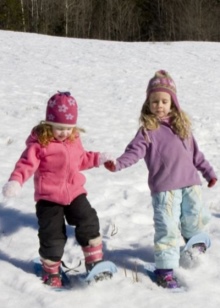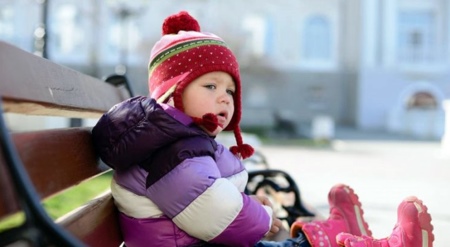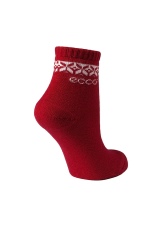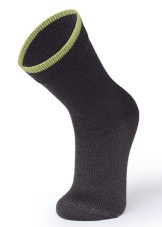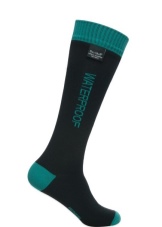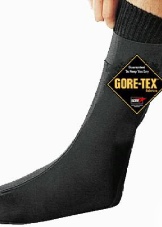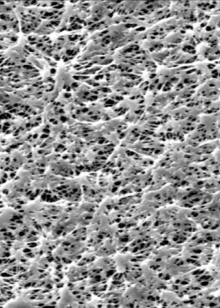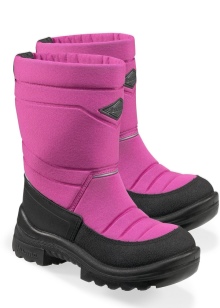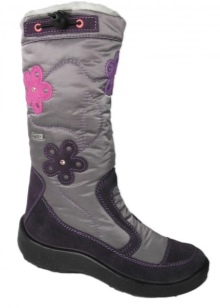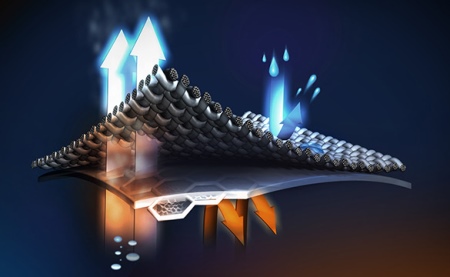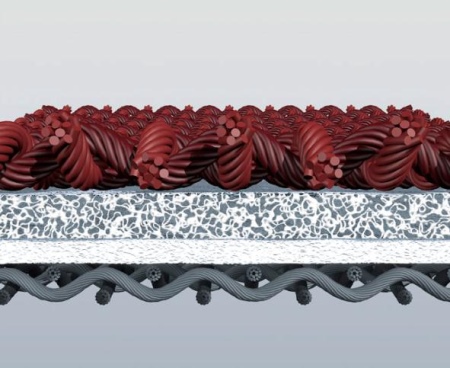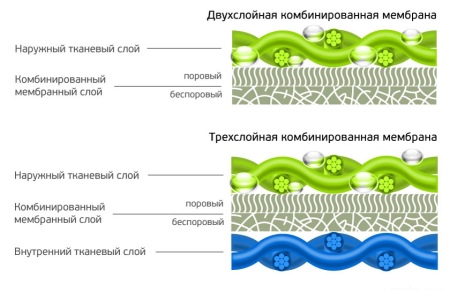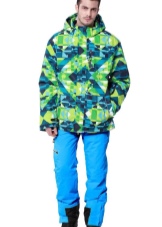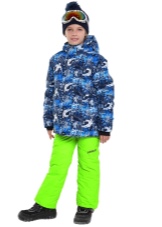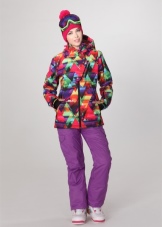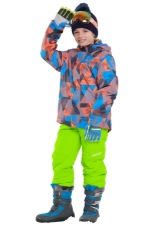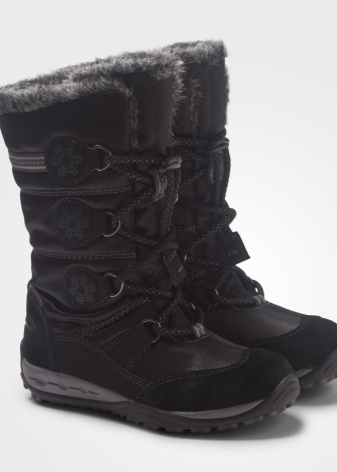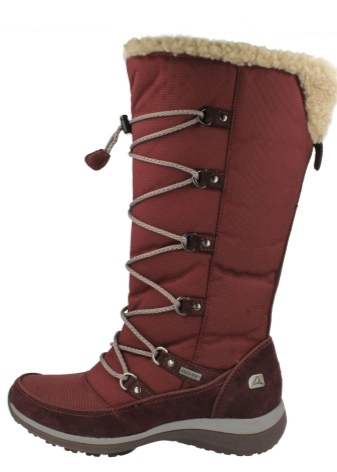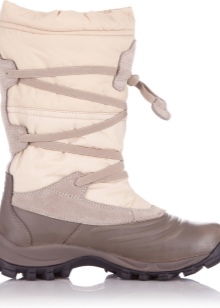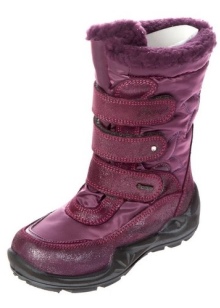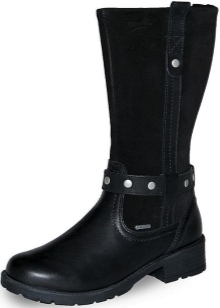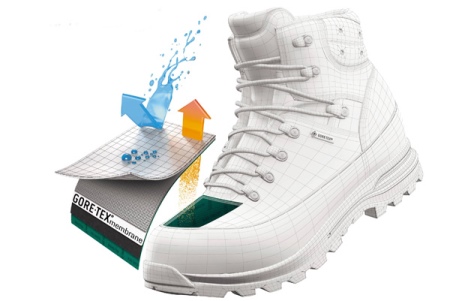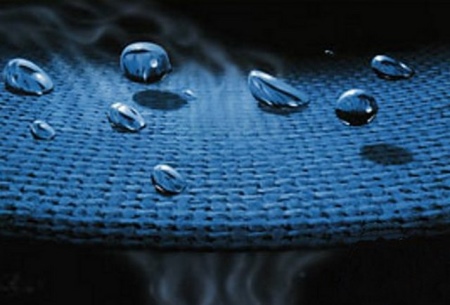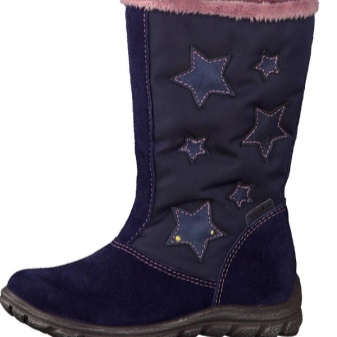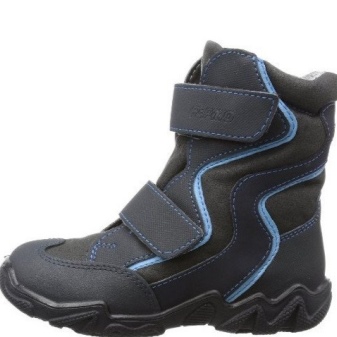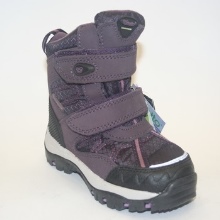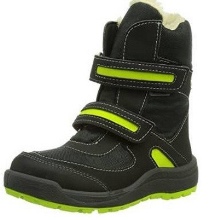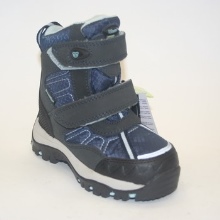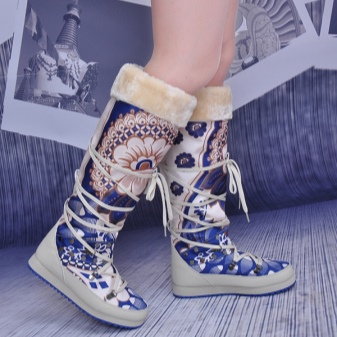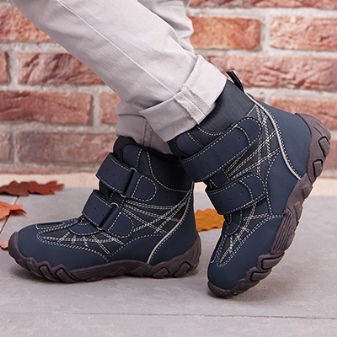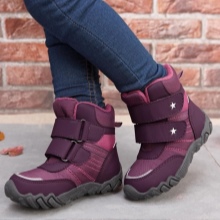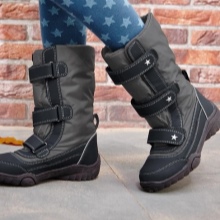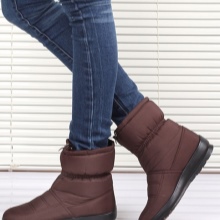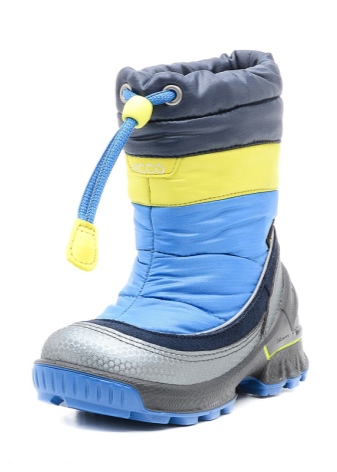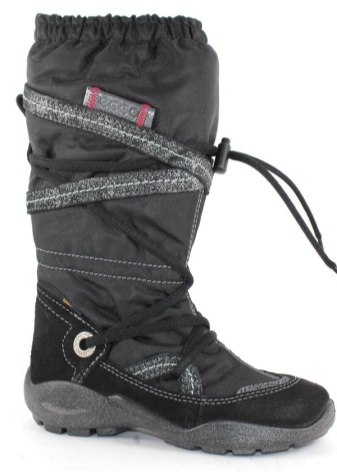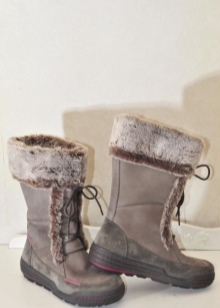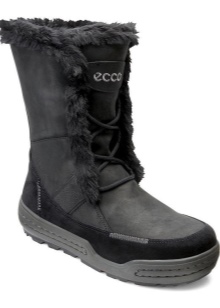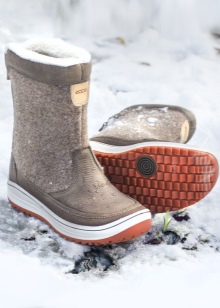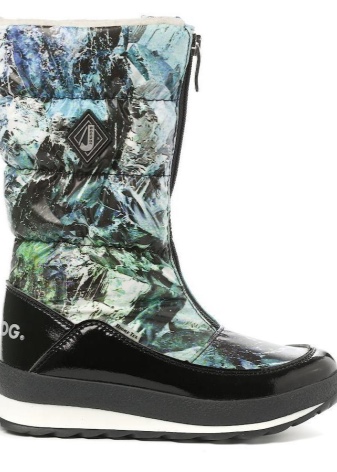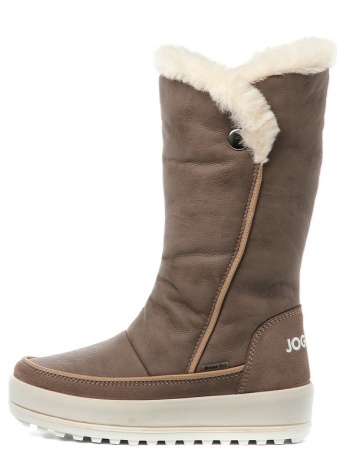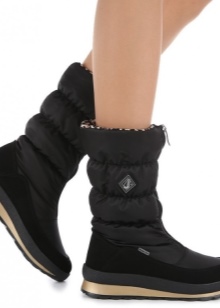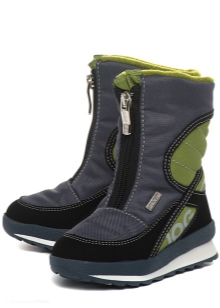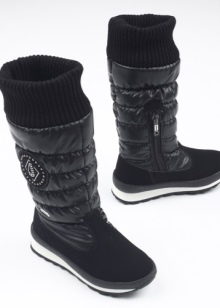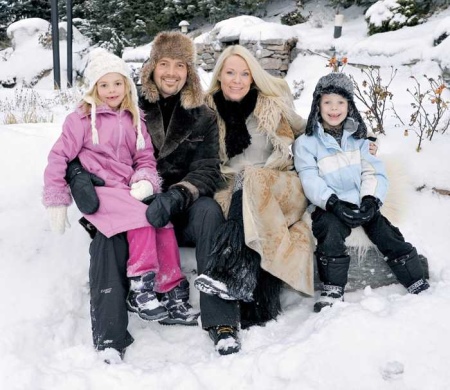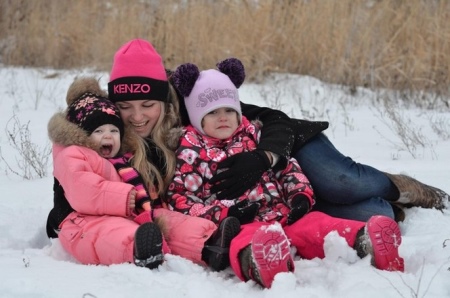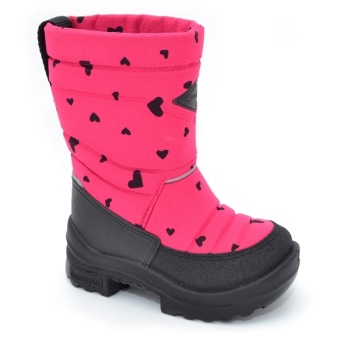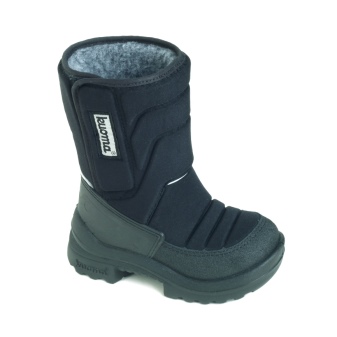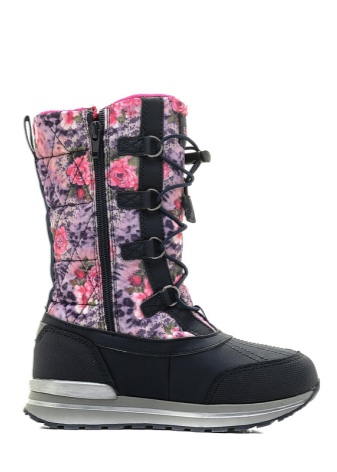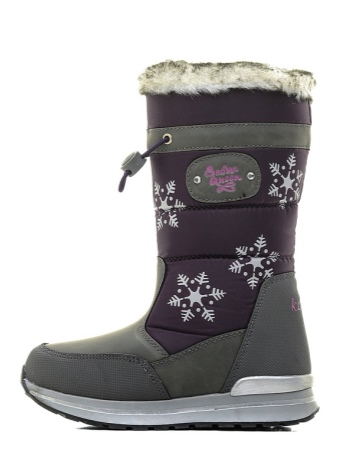Manufacturers of shoes do not stand still and widely use modern technology. So, shoes with a membrane today is very popular. Due to the properties of membrane boots to keep warm while moving, such shoes are especially in demand among young mothers who buy women's and children's models with a membrane.
Benefits
In order to understand what is so good membrane shoes, you should figure out how it works.
The membrane is a very thin film with good flexibility.
Depending on the varieties of the membrane, it may consist of several layers and have a different structure, but all types of membrane work according to the same principle. In shoes, this film is usually placed as a middle layer between the upper part and the inner lining.
The principle of operation for all types of membrane shoes is the same - outside moisture can not penetrate inside the boots, and from the inside, the released steam passes through the membrane. Thus, the legs do not sweat during movement and are well ventilated, while being protected from the weather.
These characteristics make winter boots with a membrane very warm. After all, usually the feet in the boots first sweat and then freeze, and the membrane allows the fumes to go outside and keep a comfortable temperature inside the shoe.
When does the membrane not work?
- When choosing membrane boots it should be understood that the membrane works only during movement. Therefore, if a girl needs to stand at a bus stop for a long time, then such winter shoes would not be the best option.
- For children who are sitting in a stroller or not moving during winter walks, you should also not choose boots with a membrane.
It is during the activity that inside the boots a comfortable microclimate is created with a constant temperature of 32 C.
- Another feature of such boots can be called the fact that they are not recommended to wear socks, which are 100% made of natural materials such as cotton or wool. It is better to give preference to products in which the composition of synthetic fibers is more than half. This is due to the fact that natural materials absorb moisture and thereby prevent its evaporation.
Varieties
The structure of the membrane can be divided into three types:
- Micropore membrane. This is a film that has a porous structure. The pores of the membrane are smaller than the water molecule. This property ensures the waterproofness of winter boots with a membrane. But on the other hand, the pores can freely pass the vapor molecules that are released when walking. Such a membrane at the expense of pores breathes better and remove steam through the holes. But over time, the pores can begin to pass moisture inside the boots. Also, pores can become clogged over time, and then the principle of the membrane will stop working.
- Hydrophilic membrane. This name has received a film on which there is no then. The material of the hydrophilic membrane is able to bring out the water molecules that are released during the activity. It is more reliable than micropore, but it is not so easily ventilated.
- Combined membrane. Such high-tech fabric combines both porous and non-porous coating. Such a membrane does its job best of all due to the combination of the properties of the two membranes described above.
In addition to this classification, membranes are separated according to the number of layers. They can consist of 2, 2.5 and 3 layers.
What are they like?
Going to the store for membrane boots, you can see that prices for this category of shoes vary greatly.This phenomenon is due to the fact that different manufacturers use different types of membranes. In cheaper boots, a membrane is used that is less resistant to moisture or airflow is worse. In addition, low-cost membrane technologies have a much shorter service life than high-quality and expensive.
To date, the best membranes that are used in the manufacture of clothing, footwear and sports equipment, can be called GORE-TEX and SympaTex. These technologies have their origin at the time of the very first use of the principle of the membrane in clothing and footwear and since then have not lost their leading positions in quality.
- The GORE-TEX membrane is a microporous type. Boots equipped with such a membrane, even at heavy physical exertion, remain dry inside and out.
- The membrane SympaTex is made of polyurethane and refers to the type of hydrophilic. Due to the absence of pores, such a membrane is not subject to contamination and does not lose its properties even with a strong stretching.
Shoes using these technologies are made with the latest equipment, which is an expensive pleasure. Therefore, boots with a good membrane can not be cheap.
Brands
Today, many manufacturers of winter and demi-season shoes in their collections are women's boots with a membrane. The most popular brands among women for models are Ecco, Jog Dog, Skandia, Alaska, Antarctica.
For the production of Ecco boots and boots, the GORE-TEX membrane is used, which provides maximum comfort during long active walks in the cold season. Some models are additionally equipped with a special water-repellent impregnation. High quality and Scandinavian style of shoes of this brand attracts many buyers. However, the price of winter shoes of this brand is quite high.
The Italian company Jog Dog produces membrane shoes, designed for fairly low temperatures. In their models, the manufacturer uses the membrane Biometex. In customer reviews, positive aspects include the anatomical structure of the pad in combination with a non-slip sole and a membrane that works. The manufacturer uses artificial materials for boots with a membrane.
Children's models
Children's models of boots with a membrane are very popular among young mothers. They are the perfect shoes for active and curious babies. Many manufacturers have adopted it and are actively using the latest technology for the production of footwear.
There are manufacturers that produce high-quality shoes for children - Skandia, Ecco, Kuoma, Superfit, Richter. There are also cheaper models from Zebra and Kotofey.
Austrian firm Richter produces children's shoes with a membrane SympaTex. In addition, most models have a very interesting design.
Kuoma Finnish boots for kids with a memorable design are very popular among young mothers in Russia. According to many buyers, the boots with the membrane of this company are the ideal winter shoes for active kids.
Kotofey is one of the widely sought-after manufacturers of economy-class children's shoes. Although many buyers note that the sole is erased over time, and the look of shoes deteriorates, the majority of buyers respond positively to the ability to keep the feet of children warm.
